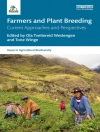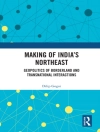In ‘The Wilderness Essays, ‘ John Muir eloquently articulates his profound reverence for nature, weaving personal experience with philosophical reflection. This collection of essays, written in the late 19th century, encapsulates Muir’s passionate advocacy for the preservation of the American wilderness, employing a lyrical and descriptive prose style that vividly captures the beauty and intricacies of the natural world. Muir’s writing is not only a reflection of the Romantic literary tradition but also acts as a significant precursor to the environmental movement, offering readers a lens through which to appreciate both the aesthetic and intrinsic value of unspoiled landscapes. John Muir, often referred to as the ‘Father of the National Parks, ‘ was a Scottish-American naturalist whose childhood and early adulthood were steeped in the wonder of the natural world. His experiences in the Sierra Nevada and other wild regions shaped his convictions about conservation and the urgent need to safeguard nature against industrialization. Muir’s travels and observations inspired him to become a vocal advocate for establishing national parks, which informs the essays’ call to action. ‘The Wilderness Essays’ is an essential read for anyone interested in environmental literature, nature writing, or the historical context of conservation efforts in America. Muir’s insights resonate deeply today, urging readers to reconnect with the wilderness and consider their role in its ongoing preservation.
Yazar hakkında
John Muir (1838–1914) was an influential Scottish-American naturalist, author, environmental philosopher, glaciologist, and early advocate for the preservation of wilderness in the United States. His writings and philosophy greatly influenced the American conservation movement, culminating in the establishment of several national parks and the founding of the Sierra Club. With a deep passion for nature, his work often celebrated the beauty and spiritual value of the natural world, advocating that humans must maintain a harmonious relationship with the earth. In ‘The Wilderness Essays’, Muir compiled a series of essays that showcase his naturalist philosophy and profound reflections on the wilderness experiences that shaped his thoughts on conservation and preservation. Muir’s literary style is characterized by vivid descriptions, personification of nature, and a profound sense of wonder and reverence for the natural world. His notions on the interconnectivity of nature were ahead of his time, and his books, including this compendium, remain seminal in the genres of nature writing and environmental ethics. Muir’s contribution to literature and environmental activism render him not just a significant author but also a key figure in the history of American conservation.












